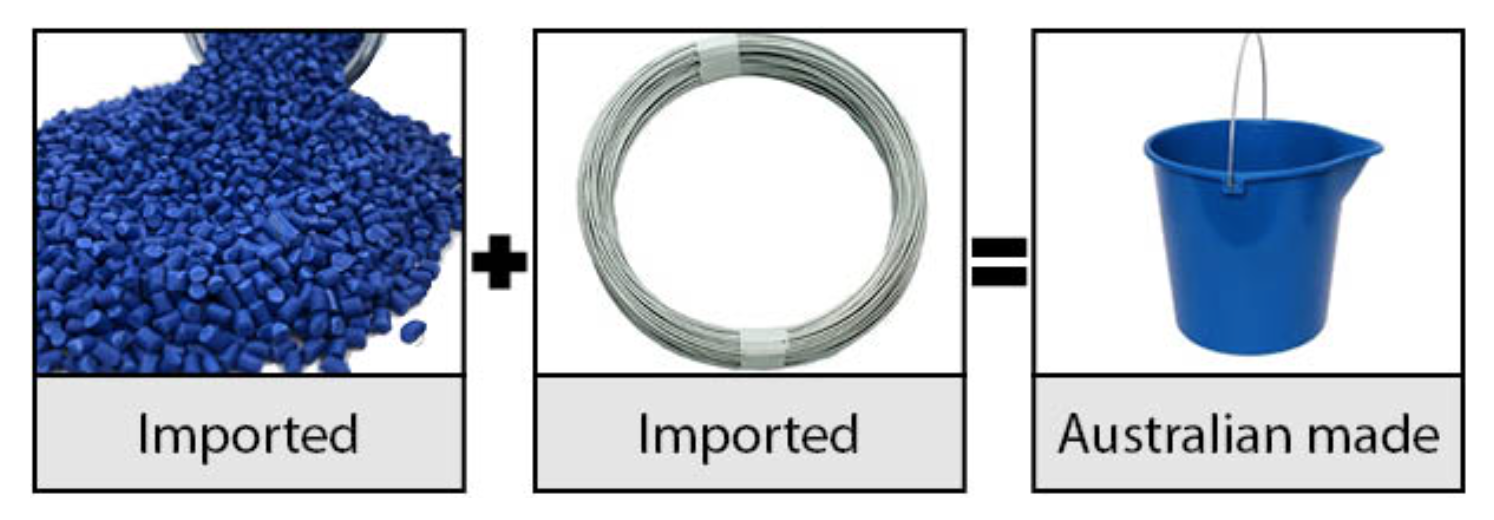It’s not only products like the bucket. Whilst that example to me, is cheating, at least it’s not likely to harm anyone.Is ‘Australian Made’ a giant scam?
We all love to be patriotic and support Australia, but what does it actually mean when a product is labelled as "Australian made"? You'd be forgiven for thinking this was a silly question.
"Australian made" just means that the product has been manufactured in Australia, right?
Well, no.
According to the AMCL (the managers of the familiar green and gold kangaroo logo we're all so familiar with), "A product can be described as 'Australian made' or 'made in Australia' if it underwent its last substantial transformation in Australia.
That means that a product doesn't need to be entirely, or even majority made in Australia to be technically considered ‘Australian made’ (and thus, be entitled to use the Australian made logo).
The AMCL cites the following example on its website:
“A business buys imported plastic pellets and wire. Through an injection moulding process, the pellets are melted and formed into a bucket. The wire is cut and bent to form a handle. The end product (the bucket) is fundamentally different to all the imported ingredients. The product has been substantially transformed in Australia.”

Image source: Australianmade.com.au.
In the above example, none of the materials in the ‘Australian made’ bucket are actually made in Australia, but the product is still legally considered to be Australian made because the plastic and wire was ‘transformed’ in Australia.
Just to be crystal clear on this point: As bizarre as it may sound, there is no requirement for a percentage of the ingredients or components to come from Australia when determining whether a product is Australian made. Nor is there any requirement that a certain proportion of the cost of manufacturing the product is incurred in Australia (there was previously a requirement that at least 50% of the manufacturing cost had to be incurred in Australia, but this was removed in 2017).
There are likely thousands of ‘Australian made’ products out there that contain zero Australian materials (some of which we're probably paying a premium for to 'be patriotic'). Do you think the definition of ‘Australian made’ needs to be changed?
My main concern lies with food products. I recently became aware of what I consider to be a massive scam perpetrated by New Zealand. You look for the country of origin, and find Product of New Zealand. However, apparently there’s an arrangement between New Zealand and China, whereby New Zealand imports fresh frozen food from China. It is then packed in New Zealand.
We used to buy frozen berries and other things because New Zealand is our next door neighbour, so we can trust them, right? We never buy anything purporting to be made in New Zealand now, because it probably comes from China, where hygiene standards are often well below what we in Australia would consider mandatory.
We check country of origin on everything now, from butter to a mattress. It pays to become educated.





